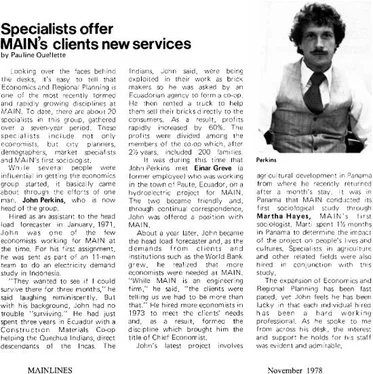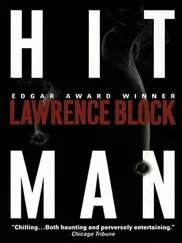John Perkins - Confessions of an Economic Hit Man
Здесь есть возможность читать онлайн «John Perkins - Confessions of an Economic Hit Man» весь текст электронной книги совершенно бесплатно (целиком полную версию без сокращений). В некоторых случаях можно слушать аудио, скачать через торрент в формате fb2 и присутствует краткое содержание. Жанр: economics, на английском языке. Описание произведения, (предисловие) а так же отзывы посетителей доступны на портале библиотеки ЛибКат.
- Название:Confessions of an Economic Hit Man
- Автор:
- Жанр:
- Год:неизвестен
- ISBN:нет данных
- Рейтинг книги:4 / 5. Голосов: 1
-
Избранное:Добавить в избранное
- Отзывы:
-
Ваша оценка:
- 80
- 1
- 2
- 3
- 4
- 5
Confessions of an Economic Hit Man: краткое содержание, описание и аннотация
Предлагаем к чтению аннотацию, описание, краткое содержание или предисловие (зависит от того, что написал сам автор книги «Confessions of an Economic Hit Man»). Если вы не нашли необходимую информацию о книге — напишите в комментариях, мы постараемся отыскать её.
Confessions of an Economic Hit Man — читать онлайн бесплатно полную книгу (весь текст) целиком
Ниже представлен текст книги, разбитый по страницам. Система сохранения места последней прочитанной страницы, позволяет с удобством читать онлайн бесплатно книгу «Confessions of an Economic Hit Man», без необходимости каждый раз заново искать на чём Вы остановились. Поставьте закладку, и сможете в любой момент перейти на страницу, на которой закончили чтение.
Интервал:
Закладка:
To journey from one city to the other, you must travel a road that is both tortuous and breathtaking. Local people will tell you that during the trip you experience all four seasons in a single day.
Although I have driven this road many times, I never tire of the spectacular scenery. Sheer cliffs, punctuated by cascading waterfalls and brilliant bromeliads, rise up one side. On the other side, the earth drops abruptly into a deep abyss where the Pastaza River, a head-water of the Amazon, snakes its way down the Andes. The Pastaza carries water from the glaciers of Cotopaxi, one of the world’s highest active volcanoes and a deity in the time of the Incas, to the Atlantic Ocean over three thousand miles away.
In 2003, I departed Quito in a Subaru Outback and headed for Shell on a mission that was like no other I had ever accepted. I was hoping to end a war I had helped create. As is the case with so many things we EHMs must take responsibility for, it is a war that is virtually unknown anywhere outside the country where it is fought. I was on my way to meet with the Shuars, the Kichwas, and their neighbors the Achuars, the Zaparos, and the Shiwiars — tribes determined to prevent our oil companies from destroying their homes, families, and lands, even if it means they must die in the process. For them, this is a war about the survival of their children and cultures, while for us it is about power, money, and natural resources. It is one part of the struggle for world domination and the dream of a few greedy men, global empire. 1
That is what we EHMs do best: we build a global empire. We are an elite group of men and women who utilize international financial organizations to foment conditions that make other nations subservient to the corporatocracy running our biggest corporations, our government, and our banks. Like our counterparts in the Mafia, EHMs provide favors. These take the form of loans to develop infrastructure — electric generating plants, highways, ports, airports, or industrial parks. A condition of such loans is that engineering and construction companies from our own country must build all these projects. In essence, most of the money never leaves the United States; it is simply transferred from banking offices in Washington to engineering offices in New York, Houston, or San Francisco.
Despite the fact that the money is returned almost immediately to corporations that are members of the corporatocracy (the creditor), the recipient country is required to pay it all back, principal plus interest. If an EHM is completely successful, the loans are so large that the debtor is forced to default on its payments after a few years. When this happens, then like the Mafia we demand our pound of flesh. This often includes one or more of the following: control over United Nations votes, the installation of military bases, or access to precious resources such as oil or the Panama Canal. Of course, the debtor still owes us the money — and another country is added to our global empire.
Driving from Quito toward Shell on this sunny day in 2003, I thought back thirty-five years to the first time I arrived in this part of the world. I had read that although Ecuador is only about the size of Nevada, it has more than thirty active volcanoes, over 15 percent of the world’s bird species, and thousands of as-yet-unclassified plants, and that it is a land of diverse cultures where nearly as many people speak ancient indigenous languages as speak Spanish. I found it fascinating and certainly exotic; yet, the words that kept coming to mind back then were pure, untouched , and innocent .
Much has changed in thirty-five years.
At the time of my first visit in 1968, Texaco had only just discovered petroleum in Ecuador’s Amazon region. Today, oil accounts for nearly half the country’s exports. A trans-Andean pipeline built shortly after my first visit has since leaked over a half million barrels of oil into the fragile rain forest — more than twice the amount spilled by the Exxon Valdez. 2Today, a new $1.3 billion, three hundred — mile pipeline constructed by an EHM — organized consortium promises to make Ecuador one of the world’s top ten suppliers of oil to the United States. 3Vast areas of rain forest have fallen, macaws and jaguars have all but vanished, three Ecuadorian indigenous cultures have been driven to the verge of collapse, and pristine rivers have been transformed into flaming cesspools.
During this same period, the indigenous cultures began fighting back. For instance, on May 7, 2003, a group of American lawyers representing more than thirty thousand indigenous Ecuadorian people filed a $1 billion lawsuit against ChevronTexaco Corp. The suit asserts that between 1971 and 1992 the oil giant dumped into open holes and rivers over four million gallons per day of toxic wastewater contaminated with oil, heavy metals, and carcinogens, and that the company left behind nearly 350 uncovered waste pits that continue to kill both people and animals. 4
Outside the window of my Outback, great clouds of mist rolled in from the forests and up the Pastaza’s canyons. Sweat soaked my shirt, and my stomach began to churn, but not just from the intense tropical heat and the serpentine twists in the road. Knowing the part I had played in destroying this beautiful country was once again taking its toll. Because of my fellow EHMs and me, Ecuador is in far worse shape today than she was before we introduced her to the miracles of modern economics, banking, and engineering. Since 1970, during this period known euphemistically as the Oil Boom, the official poverty level grew from 50 to 70 percent, under- or unemployment increased from 15 to 70 percent, and public debt increased from $240 million to $16 billion. Meanwhile, the share of national resources allocated to the poorest segments of the population declined from 20 to 6 percent. 5
Unfortunately, Ecuador is not the exception. Nearly every country we EHMs have brought under the global empire’s umbrella has suffered a similar fate. 6Third world debt has grown to more than $2.5 trillion, and the cost of servicing it — over $375 billion per year as of 2004—is more than all third world spending on health and education, and twenty times what developing countries receive annually in foreign aid. Over half the people in the world survive on less than two dollars per day, which is roughly the same amount they received in the early 1970s. Meanwhile, the top 1 percent of third world households accounts for 70 to 90 percent of all private financial wealth and real estate ownership in their country; the actual percentage depends on the specific country. 7
The Subaru slowed as it meandered through the streets of the beautiful resort town of Baños, famous for the hot baths created by underground volcanic rivers that flow from the highly active Mount Tungurahgua. Children ran along beside us, waving and trying to sell us gum and cookies. Then we left Baños behind. The spectacular scenery ended abruptly as the Subaru sped out of paradise and into a modern vision of Dante’s Inferno .
A gigantic monster reared up from the river, a mammoth gray wall. Its dripping concrete was totally out of place, completely unnatural and incompatible with the landscape. Of course, seeing it there should not have surprised me. I knew all along that it would be waiting in ambush. I had encountered it many times before and in the past had praised it as a symbol of EHM accomplishments. Even so, it made my skin crawl.
That hideous, incongruous wall is a dam that blocks the rushing Pastaza River, diverts its waters through huge tunnels bored into the mountain, and converts the energy to electricity. This is the 156-megawatt Agoyan hydroelectric project. It fuels the industries that make a handful of Ecuadorian families wealthy, and it has been the source of untold suffering for the farmers and indigenous people who live along the river. This hydroelectric plant is just one of many projects developed through my efforts and those of other EHMs. Such projects are the reason Ecuador is now a member of the global empire, and the reason why the Shuars and Kichwas and their neighbors threaten war against our oil companies.
Читать дальшеИнтервал:
Закладка:
Похожие книги на «Confessions of an Economic Hit Man»
Представляем Вашему вниманию похожие книги на «Confessions of an Economic Hit Man» списком для выбора. Мы отобрали схожую по названию и смыслу литературу в надежде предоставить читателям больше вариантов отыскать новые, интересные, ещё непрочитанные произведения.
Обсуждение, отзывы о книге «Confessions of an Economic Hit Man» и просто собственные мнения читателей. Оставьте ваши комментарии, напишите, что Вы думаете о произведении, его смысле или главных героях. Укажите что конкретно понравилось, а что нет, и почему Вы так считаете.












